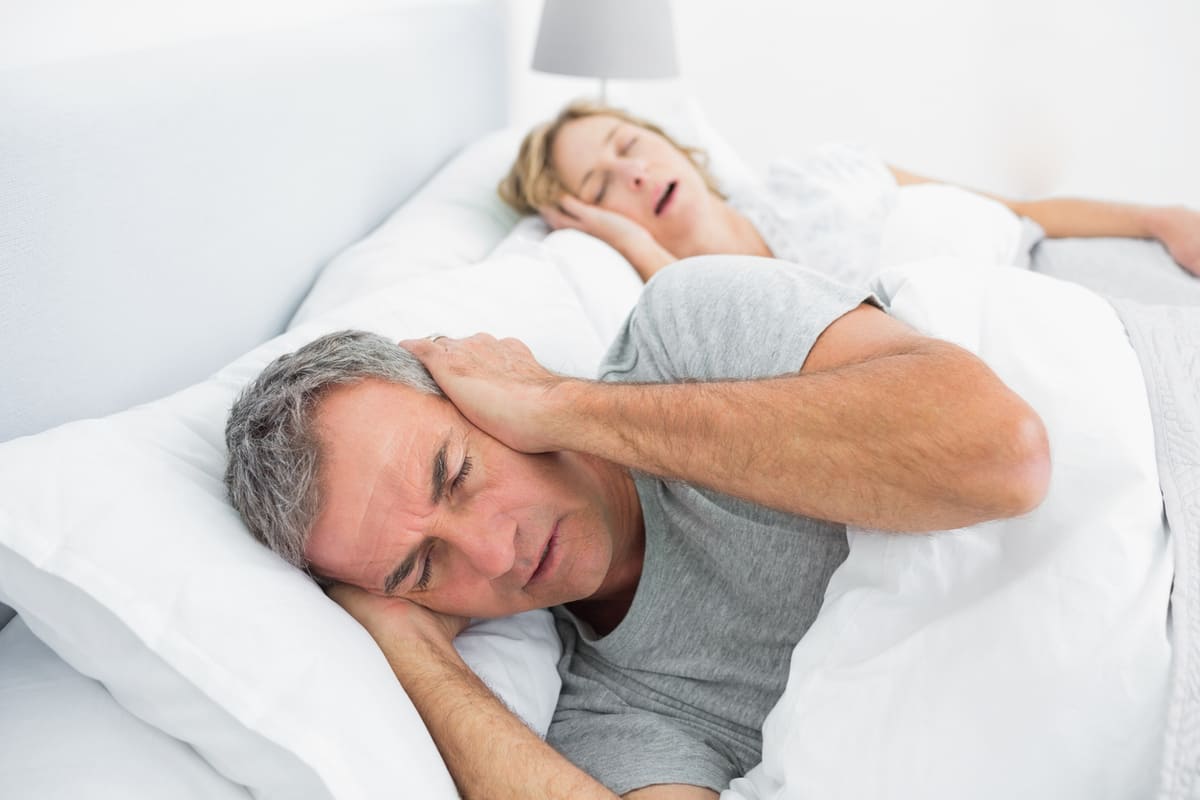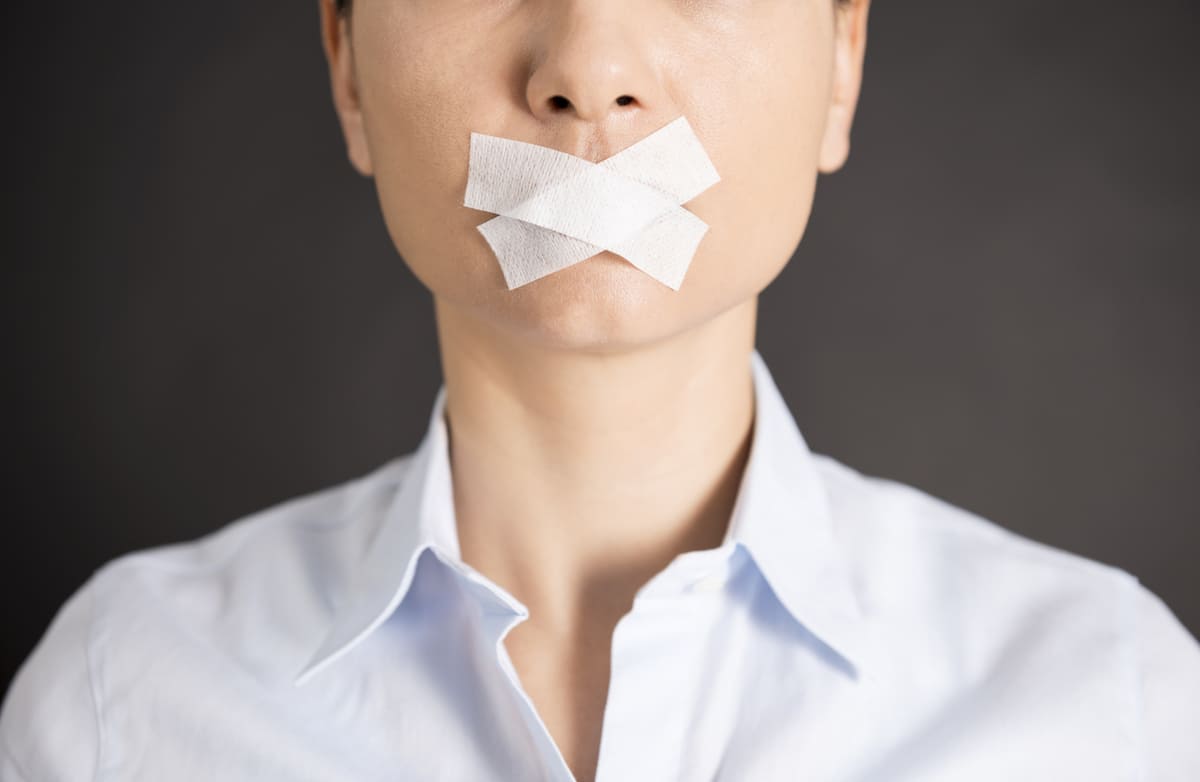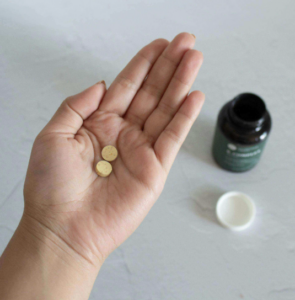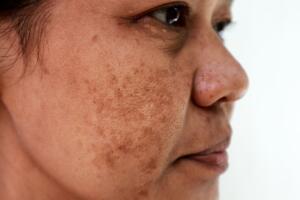A good night’s sleep is one of life’s most valuable commodities. It’s a time when the body resets and restores many of its systems, resulting in a happier, healthier you. Unfortunately, the recommended seven or more hours of sleep adults need becomes more elusive as we age, resulting in a population of people continuously in a sleep deficit. Several factors can contribute to this problem, including hormonal fluctuations, bladder issues, and a society that praises “pulling all-nighters.”
But one of the most common barriers to a blissful slumber is snoring, a problem that has sparked a controversial new trend known as mouth taping. We’ve all met someone whose mouth we’d like to tape, but this isn’t about silencing a chatty Kathy. This trend that blew up on TikTok is about retraining your body to breathe through your nose, which some experts say is the best method.
In an article published in The New York Times, Stanford University voice and swallowing specialist Ann Kearney explained that this “more efficient, effective way of breathing” not only humidifies and filters the air but also engages the lower lungs, resulting in deeper breaths that can help you relax and drift off to sleep. But before you grab the nearest roll of tape and slap it across your face (or the face of your significant other), you should carefully weigh the pros and cons.
Why We Snore

Before we talk about taping, let’s talk about snoring and why it happens, especially as we age. According to an article in Johns Hopkins Medicine, “An estimated 45 percent of adults snore occasionally, while 25 percent snore regularly.” The report states, ” You’re more likely to snore if you’re overweight, a middle-aged or older man, or a postmenopausal woman.”
So, what causes it exactly? It can be as simple as poor muscle tone, a sinus infection, or something more serious but still treatable, like a deviated septum. In other instances, it can indicate something more threatening like sleep apnea, a disruption in breathing while you sleep that can lead to cardiovascular problems.
“Snoring—especially loud snoring broken up by pauses in breathing and loud snorts or gasps as the sleeper takes a breath again—can be a sign of obstructive sleep apnea,” says Johns Hopkins sleep expert Alan Schwartz, M.D. “Sleep apnea is a serious risk factor for cardiovascular disease. It should be found and treated as early as possible.” Is mouth taping the answer? There isn’t a lot of research yet, and while early studies seem promising, there are arguments both for and against the trend.
The Pros of Mouth Taping

As the name suggests, mouth taping involves placing porous tape, such as surgical or athletic tape, across the mouth to hold it closed while sleeping. Keeping the mouth shut promotes nasal breathing, which, in early studies of mouth taping in people with mild obstructive sleep apnea, has been shown to effectively reduce the severity of snoring. According to the Sleep Foundation, one study found that “wearing a porous patch over the mouth caused all the participants to breathe through their nose, and it changed the angle of the palate and the tongue. These changes led to significantly less snoring and fewer instances of lapsed breathing.”
That’s not the only benefit of nasal breathing. It can also help lower blood pressure, according to Dr. Raj Dasgupta, a pulmonary and sleep medicine specialist at the Keck School of Medicine at the University of Southern California. Dasgupta explained in The New York Times that breathing through the nose generates nitric oxide that travels from the nasal passages to the lungs and bloodstream. “The gas can widen blood vessels, he said, potentially also improving blood flow.”
Fans of the trend claim that not only do they experience less snoring, but they also enjoy less fatigue and fewer instances of dry mouth, bad breath, and other problems exacerbated by mouth breathing.
The Cons

While millions of TikTok users praise the taping trend, many healthcare professionals caution against it, saying the risks can sometimes outweigh the benefits. Dr. Federico Cerrone of Atlantic Health System went so far as to call it “incredibly dangerous.” In an interview with Healthline, he says it “is likely a quick fix instead of treating the root cause.”
In some cases, that root cause may be nasal congestion, in which case mouth taping will only worsen a bad situation.
Carleara Weiss, PhD, MS, RN, Aeroflow Sleep’s science advisor and a postdoctoral fellow in sleep and circadian rhythms, adds that it could cause more serious risks in people with sleep apnea. She told Healthline that taping may make breathing more difficult for those individuals, thereby raising their risk for heart attack and even death. She also adds that skin irritation or a more severe allergic reaction to the tape is possible.
The Bottom Line
Nasal breathing does offer more benefits to your overall health than mouth breathing, but there isn’t enough evidence to prove that mouth taping to prevent or reduce snoring is wise. Consult with your doctor before taking medical advice from TikTok or any other social media platform. They may recommend trying other natural methods like changing your sleep position, using nasal strips, or losing weight. If your snoring is severe enough to disrupt your life or the lives of those you live with, there may be an underlying problem that requires more than a piece of tape to solve, like allergies, asthma, or sleep apnea. In that case, your physician can refer you to a sleep specialist to assess the problem and help you find a safe and effective solution.
“While social media offers relevant and easily accessible information, please avoid taking medical advice from non-healthcare professionals,” Weiss says. “Instead, good resources should come from reputable healthcare providers.”
Read Next:
13 Tips for Choosing the Right Anti-Aging Skin Care Products







